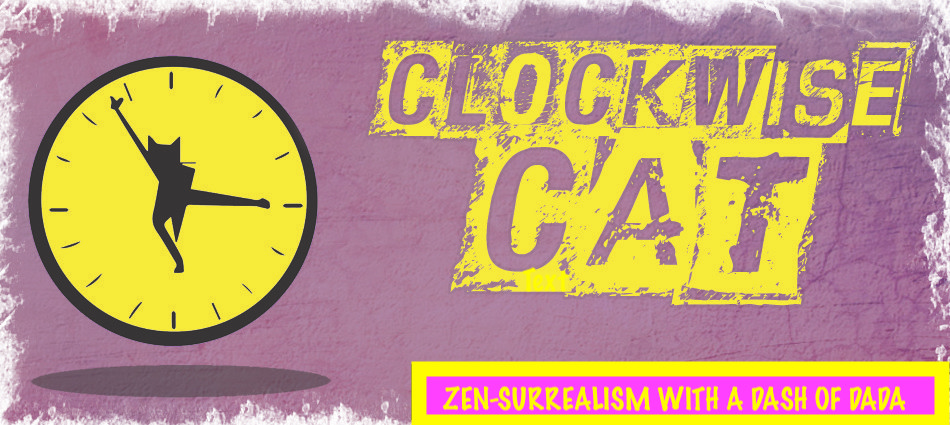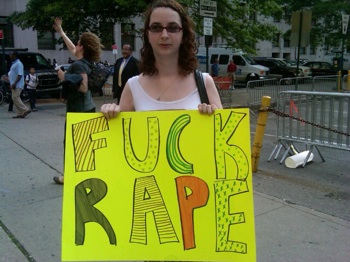
George Will’s Words of Folly (Polemic) by Rudy Ravindra
Sexual assault is the new name for rape. Rape by any other name is still rape. This crude word denotes a cruel, barbaric, and inhuman act. Any type of word play does not diminish the traumatic effect of this heinous crime, certainly not by indulging in euphemisms. In an effort to shield the perpetrator, some US campuses have resorted to using ‘sexual assault’ instead of ‘rape.’ On a student’s record the ugly word ‘rape’ might diminish his future prospects. The poor boy might miss out on his chance to join the ranks of Wall Street, to indulge in another form of rape and pillage.
What about the victim? She can rot in hell as far the male world is concerned. But in the first place, if a man indulges in such an act, is it the responsibility of the society to shield him? He should be pay for his sins, suffer the consequences for the rest of his miserable life, just like the woman who has to live with the trauma for the rest of her life.
The criminals know that they will never be caught, and even if they are, the shoddy investigations by the corrupt and incompetent police will let them off the hook, or at the most, with a slap on the wrist. Unfortunately, for every reported crime, there may be hundreds that go unreported. Many women feel ashamed to admit that they were violated. Factoring in unreported cases, only a very tiny fraction of rapists will ever spend a single day in jail. Thus, punishment for rape is not commensurate with the egregious nature of the crime. No draconian law will prevent crimes against women, unless there is serious effort to enforce existing laws.
Groping in crowded places, and in mass transit—buses, suburban trains, metros, the unwelcome touching of unsuspecting women at the workplace, these are the symptoms of a sick society. Women are fair game, no matter their status. Even the great Sophia Loren wasn’t immune. But she being who she is, could put Marlon Brando in his place.
Women are not safe anywhere, in the East or West, North or South, in poor countries or the rich world, in democracies or dictatorships, in urban areas or rural places, at workplaces or even at their own homes. As long as there are perverted men who taunt, tease, pass lewd comments, wolf whistle, and other obnoxious behavior, women will be vulnerable. In poorly lit parking lots of big cities many women are molested, raped, robbed and even murdered. Rape is probably worse than murder. For many women in India, death is preferable to rape. The victim of a murder is undoubtedly dead and buried (or cremated); she doesn’t have to suffer the consequences, doesn’t have to live to face the stigma, doesn’t have to face the ignominy of being shunned by neighbors and relatives, doesn’t have to be abandoned by her husband who now perceives her as damaged goods.
From the very beginning, the premium attached to a male child in many cultures has led to the notion that men are superior to women. Domestic abuse is rampant, some men treat their wives like chattel, beat them, rape them. In extreme cases, some women are burned alive, kerosene poured over their trembling bodies and a match lit, end of an innocent life. Her crime: too little dowry or her poor parents did not make good on a promised refrigerator or an automobile or some other coveted item.
Most of the domestic abuse cases, either in India or the United States, two of the largest democracies in the world, are not investigated with full vigor, the police mostly indifferent to the plight of the battered women. Some men even believe that a tap every now and then will keep a wife in her place, she will behave, be obsequious and obedient. However well-educated, however well-accomplished, at home a woman is supposed to cook, care for children, and be at the beck and call of her Lord and Master.
The gruesome gang rape of a young student in a moving bus in Delhi made headlines all over the world, and the vociferous protests all over India led to new tougher laws, and fast-track courts. In spite of these reforms, sexual abuse and rapes continue unabated. The gang rape of a journalist in Mumbai, the gang rape of a woman in central India by her own husband and other men, who forced her to drink urine in the presence of her young son, the rape of a prepubescent girl in South India, are but a few recent gory crimes. The list goes on and on and on.
Hindus worship many goddesses—Saraswathi, Parvathi, Durga, to name a few. Why is it that a culture which worships ethereal Goddesses disdains the earthly women? What goes through the minds of the perverts when they indulge in such disgusting acts? Do they enjoy it? Do they feel superior and powerful? Is there any pleasure in taking a woman forcibly, a woman who is scared, a woman who cries for help, a woman who is in pain. What type of deranged man enjoys such a perverse pleasure?
Leaders are indifferent to these grave crimes, appearing to be insensitive, and totally out of touch with reality. Recently, in response to a female journalist’s enquiry as to what the government was doing to bring the perpetrators of rape and the hanging of two teenage girls in his state, the Chief Minister retorted, “Why are you so bothered, you are safe, aren’t you?”
“Boys will be boys,” “rape doesn’t cause pregnancy,” “rape is a woman’s fault,” “she wore a provocative dress”—these are but a few offensive comments by powerful politicians in the United States and India. And it doesn’t help that influential columnists like George Will deride and degrade rape victims. He recently wrote “…when they make victimhood a coveted status that confers privileges, victims proliferate.” Mr. Will seems to suggest that women are running around college campuses falsely claiming that they were raped, and hence demand privileges. This Pulitzer prize winning conservative pundit seems to have lost his marbles. It’s time to hang up your poison pen, George.
According to The Economist, there are more men in India (106.8 men for 100 women), and more women in USA (97.4 men for 100 women). The skewed ratio in India is due to the preference for boys, as though they might bring salvation to the whole family. A case in point is Punjab, a northern state, where female babies are killed, female fetuses are routinely aborted. There are ultrasound facilities in every nook and cranny, to detect female fetuses, to abort them. It is a pity that the government is so helpless. This has been going on for so many years, and now there is a severe shortage of marriageable-age girls.
Raw numbers apart, in both India and the United States, it is quite clear that there are significant number of women, underrepresented in every walk of life—police, judiciary, congress, senate. Only 20 women senators (out of a total of 100), and 82 women in Congress (out of a total of 435) in the US; 61 women members of parliament in India (out of a total of 543). However, this figure in India is a far cry from the 33 per cent quota that Women’s Reservation Bill seeks to implement. This Bill is languishing in the Parliament, the patriarchs who control political, economic, religious, and social structures, are not about to give up so much power to the weaker sex. In the United States there is no such debate, affirmative action is under assault by the radical, reactionary, right wing-dominated Supreme Court.
Governments across the world spend billions of dollars fighting terrorism, as though this menace can be eradicated by throwing money. But the same governments are reluctant to invest in a massive campaign to exterminate violence against women. Education, economic empowerment and extinction of age-old prejudices might go a long way to ameliorate the plight of women.
Editor’s note: This article originally appeared in International Policy Digest
Author bio:
Rudy Ravindra attended the Iowa Writers’ Workshop (Summer 2012). His work has appeared inBewildering Stories, Blazevox, Enhance, Southern Cross Review, and others. He lives with his wife in Wilmington, North Carolina.



